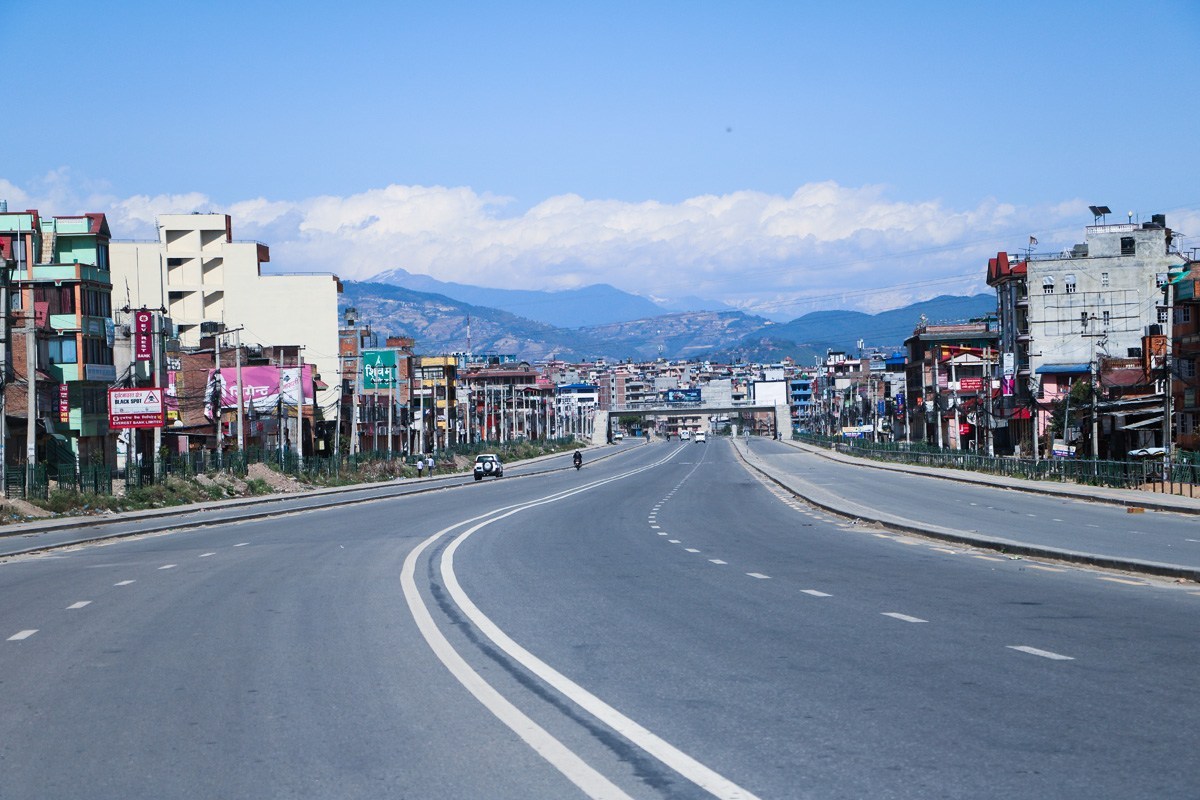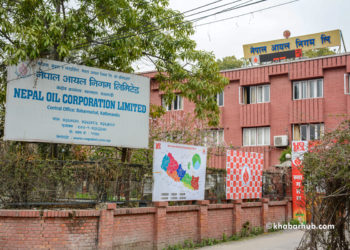As millions of people globally are placed under lockdown imposed to stem the spread the deadly coronavirus, the virus has infected more than 13,000 in Nepal as of June 29.
It’s been more than three months that our lives and work have been dramatically transformed in many different ways as people not allowed to visit relatives, cannot stroll in the parks and what not.
Sports fans are turning to video games and concerts. Training is being conducted using e-learning and remote teaching; schools have gone online.
Quarantined lovers are distance-dating. The lockdown requires people to stay where they are. Until we have a vaccine, lockdown could be the only way to reduce the spread of the coronavirus.
Although no one could dispute that this is the best way to prevent the spread of the virus, there seems to be no thought given to the larger question of the impact of the lockdown of people’s lives.
The purpose of the lockdown is to reduce the reproduction of the virus – in other words, to reduce the number of people infected. In developing countries — like Nepal – a lockdown is the best way to prevent the spread of the virus since these countries can’t control the spread of the disease and they lack the resources to treat those who are infected.
By an odd twist of logic, freedom becomes a crime; opening stores becomes a crime; driving vehicles is a crime; working becomes a crime; opening industries is a crime; going shopping is a crime.
Obeying the lockdown is the prime law of the land; any action incompatible with that lockdown is a crime.
Although no one could dispute that this is the best way to prevent the spread of the virus, there seems to be no thought given to the larger question of the impact of the lockdown of people’s lives.
Further, since the lockdown isn’t properly managed, the government has missed obvious opportunities to deploy the lockdown in ways that not only achieve its purpose, but allows social distancing, deploying safety equipment properly, and educating people to avoid spreading the virus.
Most people are not dying from the coronavirus; they are dying from starvation, poverty, social violence, and poor access to health services in time due to the unavailability of transportation, health care workers, and medicines.
People are not allowed to earn their income but they are allowed to spend money on food and health services. But we must ask how long they can survive with their limited money, but with no source of income.
The daily-wage laborers with no other sources of income are reduced to begging on the street for food to survive.
On May 20, the Kantipur newspaper reported the tragic news of the death of a man who was seeking food for his family. The dead man’s wife said, “We can fight with the disease — but not with an empty stomach.” The woman didn’t even have the money for his cremation so his villagers collected the money to pay.
More than 1,200 people committed suicide since March 24, 2020 in Nepal. Most of them died by hanging themselves.
Quarantine is promoting the spread of coronavirus because it forces many people to stay in the same rooms. It also denies them access to health care.
The second most popular method of suicide is consuming poison while it is sad to realize that 29 have died of COVID 19 so far.
At home, young children spend more time on video games and mobiles since they are not allowed to play outside the house.
They are not even allowed to play with other children whether they are infected or not. They are making more trouble for their parents and not studying at home.
Teachers are trying to teach their courses online, but few homes have a smartphone and good internet, so this approach is not effective.
Helpless and poor people are losing their lives. One recent example was a 30-year-old man who died due to starvation and no access to health services.
This led to a disaster for his family because he was the one who fed his wife and children.
The government does not have any proper plan to reopen the country after the lockdown. The government has essentially kept all citizens — children, women, men, the elderly, and young teenagers — in prison even though they never committed a crime. Is this not this pandemic?
Quarantine is promoting the spread of coronavirus because it forces many people to stay in the same rooms. It also denies them access to health care.
For example, we witnessed a terrible situation at the Narayan Campus of Narayan Municipality. In this case, 34 people who tested positive for COVID-19 were placed in quarantine with 205 others for more than two days.
Many of the people kept in quarantine were sent home without any tests because no test kits were available.
Many of the people with the virus came from India Although the Supreme Court has ordered that those in quarantine should be administered the PCR test before they are sent home, local authorities have ignored the order.
One woman in the Baitadi District died while she was in quarantine because she did not receive any treatment. The woman came from India and suffered from heart disease. Those trapped in quarantine are liable to die from COVID 19 there.
The governments’ reactions to COVID-19 has plunged the world economy into a recession with the potential of drastic consequences and historical levels of unemployment and deprivation.
Necessary measures to contain the spread of the disease through quarantines, travel restrictions, and lockdown of cities have resulted in a significant reduction in demand and supply.
Economic activities in transportation, retail trade, leisure, hospitality and recreation have been battered (United Nations, 2020).
Loans are not approved because people have no jobs and no income. Farmers cannot sell their produce because there is no market and no transportation to bring their produce to market.
Nepal is also vulnerable to natural disasters, including seasonal floods and landslides. The COVID-19 crisis will have a direct impact on our ability to respond to the imminent economic crisis we will face.
But the full extent of the impact is yet to be known. There is a risk that the country could be faced with poverty, starvation, unemployment, and other socio-economic impacts.
Workers have been forced to line the road and beg for food to survive; they are far more afraid of starvation than of coronavirus.
Lockdown is not the only way to limit the spread of the disease. The time has come to loosen the lockdown.
People suffering from non-communicable diseases and lack of medicine. Many have no transport service to reach hospitals.
Those who reach hospitals are not receiving treatments. The supply chains of daily goods have been disrupted. People’s lives are ruined. Renters who can no longer pay their rents are thrown into the streets.
Loans are not approved because people have no jobs and no income. Farmers cannot sell their produce because there is no market and no transportation to bring their produce to market.
The government has already spent over three months without developing a proper agenda to alleviate the massive human suffering. Soon, people will die on the streets in the thousands.
(The writer is a student of Master in social work, Tribhuvan University)









Comment